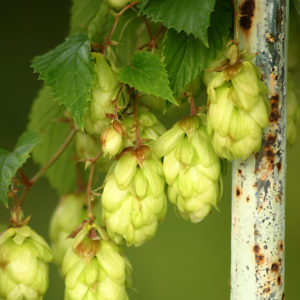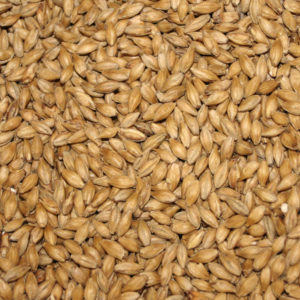If you haven’t heard, today’s a big day for one of the biggest things to happen to German beer, the Reinheitsgebot. It was 500 years ago that the law that would later become known as the German Purity law was first issued by then Duke of Bavaria, Wilhelm IV.
To celebrate this day, I thought it might be fitting to share with you some of the history, and maybe some facts that you might not know about this misunderstood part of beer lore. Germany’s Rineheitsgebot!
 The History
The History
When the law was first signed back in 1516, it wasn’t known as the Rineheitsgebot, and it’s elements of purity, and focus on ingredients was really actually pretty downplayed. The original purpose was much more commonsense. Although, the third edict of the law did specify the following:
In all our towns, marketplaces and the whole of the countryside, that beer shall have no other ingredients than barley, hops and water be used and employed.”
As we start to explore a little bit, we’ll see that this small passage was really not the point of the 320 word document. If not to regulate the ingredients, then…what was the purpose?
Well… The first two sections of the law regulated pricing. They capped what purveyors would be allowed to charge for their beer-wares, especially during different seasons. And the fourth section (again, about pricing) had a comment in the end where the Duke reserved the right to change any provisions in the law during any future grain shortages.
So… Maybe all this talk bout beer purity, and superiority of German beer was actually routed in the start in money. Isn’t it always? To farther this thought even more, when Germany unified in 1871 the law was rewritten, and the ingredient restrictions were surprisingly left out… Why? Northern Germany.
Northern Brewers were brewing beers that were much more influenced by beers from other countries (especially their Belgian neighbors) where these “odd” ingredients were revered. So, might it have made a little bit of sense for them to allow these ingredients…and thusly allow taxes on these ingredients? Money.
The Law Changes, for Tradition?
The point where I really see the law changing in it’s history is the early 1900s, this is when it’s first written to include rules that separate lagers and ales. The Bavarian Brewers held onto their strong lagering traditions to the point that when the Weimar Republic was created to reunify Germany, Bavaria refused to join unless their purity law could come with them. The only way to make sense of all this beer mumbo jumbo, was to create two separate laws. There was then, under the 1919 Reinheitsgebot an older law, very restrictive for lagers, and a more lenient, newer law for ales that allowed some leeway into ingredient usage. Without this latter law, our wheat beers, our Gose’s and Berliner Weisse’s wouldn’t have been possible as we know them.
The two laws were finally pulled together in the 80s with the fall of the Berlin Wall and another unification, where they were pulled together into the tax law. The guidelines would still carry on with two separate categories, one for ales and one for lagers, though with a twist of Germans being forced by European courts to accept imports of beer from other countries that might not follow their purity law to the letter.
 What Does It All Mean?
What Does It All Mean?
The complications, and misunderstandings of the Rineheitsgebot have created much confusion for drinkers in the United States, and Germany alike. There seems to have grown a misconception that is only now started to be broken in Germany that German beer, because it’s “more pure” is better. This seems to have sprung up in the late 80s when other beer started being imported, and didn’t follow their guidelines. But it’s also creating problems for some modern Brewers in the country.
How can modern brewing improve, and change with a restrictive law still on the books? Clarification agents, altering water chemistry, wort aeration…hell… Forced carbonation have never really been addressed by this antiquated law. Yet modern Brewers are forced to interpret an deal with the legality of them. If brewery elsewhere wants to lower the ph of their mash, they can simply add food grade acid… A brewer in Germany must use an acidified malt to do the same task… Simply because the law is worded that way. Tasks become more difficult, though many would argue that that’s the entire point.
The biggest hurdle seems to be the ability of Germany to keep up with what is happening elsewhere in beer. Their purity law might have helped create a resistance to change, a stubbornness that is now catching up with them in declining per capita beer consumption.
So… In short, what does it mean? It means that in celebration of 500 years of defining what beer is, and isn’t… It might be time to re-explore these definitions. We are quickly doing that here in the United States, with our “style guidelines” always being rewritten, and brewers encouraged to continually push boundaries… Germany… It’s your turn.
